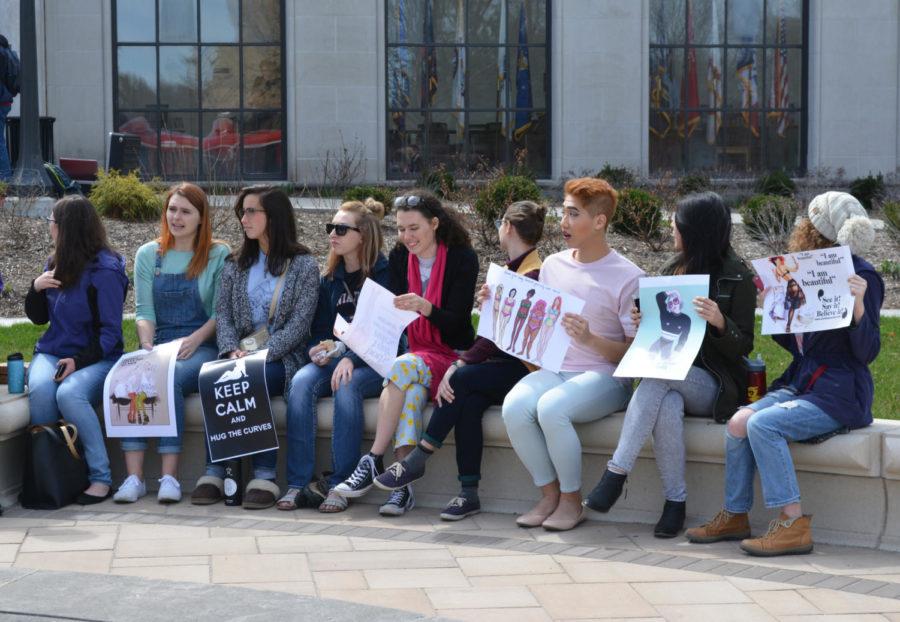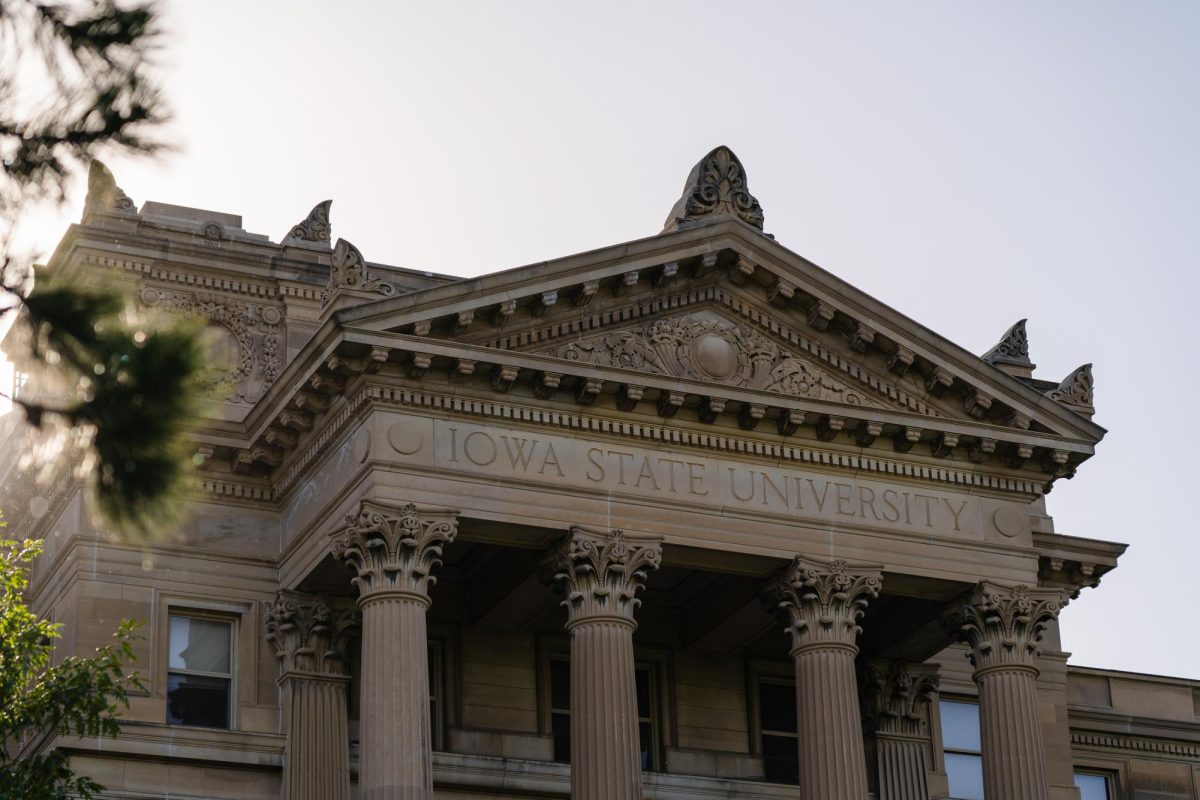Study opens to examine experience of plus-sized students at Iowa State
Katlyn Campbell/Iowa State Daily
Students hold body positivity signs before the Destination Curves show started April 7, 2017, at the fountain outside the Memorial Union.
November 6, 2019
Two individuals associated with Iowa State are starting a study focused on the plus-sized student experience in higher education.
Amanda Arp, a graduate student in English, and Cassidy Boe, an Iowa State alumna, have recently started a study titled “Improving the Plus-Sized Student Experience in Higher Education” and are now seeking interviewees.
Boe was interning with Student Wellness and working with different offices on campus dealing with the plus-sized student experience when the idea for the study came to her.
“What we were focusing on was a program or something so fat students could request an accommodation for larger seats in their classes because that is a well-known problem,” Boe said. “It obviously affects your ability to learn and how you learn, and a problem I was running into was that I basically didn’t really have any proof that it was a problem. I knew it was a problem from personal experience and reading fat studies but I didn’t have any stats on Iowa State.”
The focus of the research is on the lived experiences of “plus-sized” undergraduate and graduate students at Iowa State. This includes experiences specifically at Iowa State, as well as life experiences of plus-sized students outside of their time at the university.
Arp and Boe said although “plus-sized” and “people of size” are the most neutral terms to use, students do not have to identify specifically with those terms to participate in the study.
“From my end, the interest [for this study] came from understanding how people of size frame themselves with terminology but also their experience in a college context,” Arp said.
Students who are over the age of 18 and identify as “fat” or another term such as “big,” “large,” “curvy,” “chubby,” “heavyset,” “husky,” “big-boned,” “plump,” etc. are able to participate in the research study focused on the lived experiences of “fat” students.
In a press release about the study, Arp and Boe said there was no qualifier for whether students are “fat enough” to participate in this study. They said they welcome all students who simply self-identify as “fat” or a similar term, regardless of their place on the fat spectrum.
For this study, participants would be asked to participate in an approximately 30-60 minute-long interview, which Arp and Boe said could be in person or over the phone depending on the participant’s comfort. During the interview, participants would be asked about how they define “fat,” how or if they identify with the term “fat,” their experiences on and off campus as a “fat” person, and how their experiences as a “fat” student could be improved.
“[We want] to be able to take this to high up offices at Iowa State and be like ‘this is how you are failing fat students,’ but we also want to contribute to fat studies literature in general,” Boe said.
If anyone is interested and/or willing to participate in this study, contact Arp at [email protected] or Boe at [email protected] using an @iastate.edu email.







